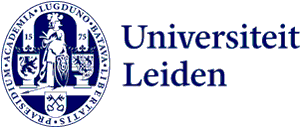
61st Leiden-London Meeting on the EU’s strategic autonomy
On Saturday 25 June, the Europa Institute of Leiden University hosted the 61st Leiden-London Meeting, an annual event organized jointly by the Europa Institute and the British Institute of International and Comparative Law (BIICL). This year’s meeting had “Interdependence, cooperation and strategic autonomy: A (legal) view from the EU” as its overarching theme.
The meeting – which took place in the Cleveringa lecture hall of the law faculty – opened with a keynote lecture by Frank Hoffmeister, Director for General Affairs and Chief Legal Officer of the European External Action Service (EEAS); this session was chaired by Michael Dougan (University of Liverpool). In his speech, Hoffmeister gave an overview of various aspects of strategic autonomy in the EU’s external action, including its many recent actions in response to the Russian invasion of Ukraine. It was noted that although the EU’s legislative processes are often slow, the response to the war has shown that where necessary it can act with great speed.
Following this, a panel chaired by Alison McDonnell, managing editor of the Common Market Law Review, discussed strategic autonomy in specific areas. Steven Blockmans (University of Amsterdam) explored the EU’s “Strategic Compass” and the European Defence Union, which has long remained under-developed but which has received significant attention in recent months. Next, Mavluda Sattorova (University of Liverpool) discussed the role foreign direct investment (FDI) plays in strategic autonomy. She pointed out that whereas the orthodox view in investment law sees FDI as a benefit and is sceptical of any limitations, the rise of tools such as FDI screening has changed this view: foreign investment, in the words of Commission president Ursula von der Leyen, is “Janus-faced”.

The 2021 Common Market Law Review Prize for Young Academics was awarded to Giovanni De Gregorio (University of Oxford) and Pietro Dunn (University of Bologna and University of Luxembourg) for their article “The European risk-based approaches: Connecting constitutional dots in the digital age”, which was published in the April 2022 issue of the Review.
After the lunch break, the afternoon session opened with a panel chaired by Christa Tobler. First, Leigh Hancher (Tilburg University) discussed the role of strategic autonomy and EU cooperation in the gas crisis, which was already ongoing but only gained significance after the Russian invasion of Ukraine and the EU’s subsequent attempts to reduce its reliance on Russian gas. It was noted that much of the EU’s action in the field of energy security concerns infrastructure rather than “molecules” – if there is a large reduction in the overall availability of natural gas, the EU’s current system does not suffice. Nico van Eijk, chair of the Dutch Review Committee on the Intelligence and Security Services (CTIVD), delivered some remarks on the relationship between cyber security and EU law. He noted that much of the terminology – “cyber” and “(national) security” – is exceedingly vague. Moreover, the field is constantly in flux because of the rise of new technologies: legislation and case law are almost inevitably behind on the facts.
The day closed with a panel chaired by Marise Cremona (European University Institute) and including Frank Hoffmeister, Jan Wouters (KU Leuven), Mavluda Sattorova, Thomas Ackermann (LMU Munich) and Nico van Eijk. The discussion featured such topics as the role of the accession process of new Member States, acknowledging and reflecting on the legal limitations of moving from responsiveness to greater proactiveness.
